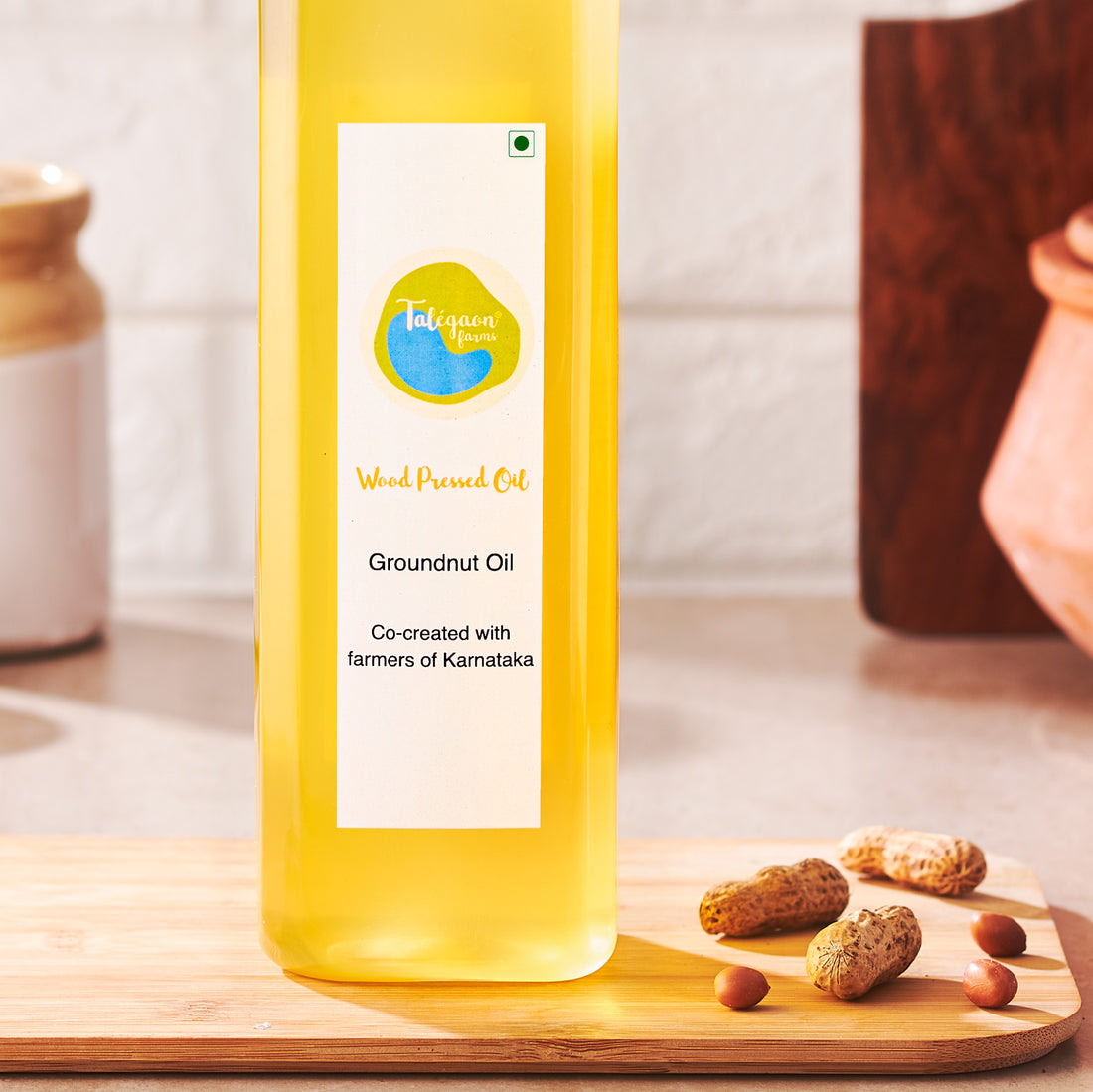
In the realm of cooking oils, each option vies for attention, promising a unique set of health benefits. Among these contenders, groundnut oil often takes center stage, celebrated for its rich flavor and potential nutritional advantages. But the critical question persists: Is groundnut oil genuinely good for health? Let's delve into the nutritional profile, potential benefits, and considerations surrounding groundnut oil to unravel the truth behind its impact on health.
Understanding Groundnut Oil:
Groundnut oil, also known as peanut oil, is derived from the pressing of peanuts. With its distinct nutty flavor and high smoke point, it has become a popular choice in kitchens around the world. The nutritional composition of groundnut oil contributes to its potential health benefits.
Nutritional Composition:
-
Healthy Fats: Groundnut oil is predominantly composed of heart-healthy monounsaturated and polyunsaturated fats. These fats, when consumed in moderation, can contribute to maintaining cardiovascular health by reducing bad cholesterol levels.
-
Vitamins and Minerals: Rich in essential nutrients, groundnut oil contains significant amounts of vitamin E, a powerful antioxidant that supports skin health and combats oxidative stress. It also provides essential minerals such as magnesium, phosphorus, and potassium, contributing to overall well-being.
-
Protein Content: Groundnut oil contains a modest amount of protein. While not a primary source of protein, its inclusion in the diet contributes to overall protein intake.
-
Resveratrol Content: Resveratrol, a natural compound with antioxidant properties, is present in groundnut oil. This compound has been linked to various health benefits, including potential anti-aging effects and cardiovascular support.
Potential Health Benefits:
-
Heart Health: The monounsaturated and polyunsaturated fats in groundnut oil play a pivotal role in promoting heart health. These fats help lower levels of LDL (low-density lipoprotein) cholesterol while maintaining or even increasing HDL (high-density lipoprotein) cholesterol, contributing to a healthier cardiovascular system.
-
Antioxidant Support: The presence of antioxidants, particularly vitamin E and resveratrol, provides a shield against oxidative stress. Antioxidants help neutralize free radicals in the body, potentially reducing the risk of chronic diseases and supporting overall well-being.
-
Skin and Hair Benefits: Vitamin E, abundant in groundnut oil, is renowned for its positive effects on skin and hair. The application of groundnut oil can moisturize the skin, promote a healthy complexion, and contribute to shinier, lustrous hair.
-
Anti-Inflammatory Properties: Groundnut oil possesses natural anti-inflammatory properties. While more research is needed, these properties may contribute to reducing inflammation in the body, which is often linked to various health conditions.
-
Potential Anti-Cancer Properties: Some studies suggest that the presence of resveratrol in groundnut oil may have anti-cancer properties. However, it's important to note that more research is required to establish definitive conclusions in this regard.
-
Weight Management: The inclusion of groundnut oil in the diet, when part of a balanced and mindful eating plan, may contribute to a feeling of satiety. This can be beneficial for individuals managing their weight.
Considerations and Moderation:
-
Caloric Density: While groundnut oil offers health benefits, it is important to consume it in moderation. Like all oils, it is calorie-dense, and excessive intake can contribute to an increased calorie load in the diet.
-
Individual Health Conditions: Individuals with specific health conditions, such as nut allergies or existing cardiovascular issues, should consult with a healthcare professional before incorporating groundnut oil into their diet.
-
Quality Matters: Opt for high-quality, cold-pressed groundnut oil to preserve its nutritional integrity. Cold-pressed oils are processed at lower temperatures, retaining more of the oil's natural compounds.
-
Balanced Diet: Groundnut oil should be part of a well-rounded and balanced diet. It's essential to diversify sources of fats and oils to ensure a broad spectrum of nutrients.
Conclusion:
In conclusion, groundnut oil can be a flavorful and potentially beneficial addition to a healthy diet when used mindfully and in moderation. Its rich nutritional profile, including healthy fats, vitamins, and minerals, contributes to its reputation as a versatile cooking oil with potential health perks. However, as with any dietary component, balance and individual considerations play a crucial role. Before making significant changes to your diet, especially if you have specific health concerns, it is advisable to consult with a healthcare professional. Embrace groundnut oil as part of a diverse and balanced culinary journey, unlocking both flavor and potential health benefits in your kitchen.
Talégaon Farms is a social enterprise that works with marginal farmers across India, helps them own the supply chain and thereby bring themselves out of poverty. The cold pressed oils we sell are made directly by marginal farmers in factories that they own and each purchase helps them bring themselves out of poverty with dignity. Talégaon Farms helps farmers with market intelligence, product quality and other aspects that help them create a suitable product for urban markets.
Buy our amazing coldpressed groundnut oil here. Made by farmers and delivered straight to your doorstep.

